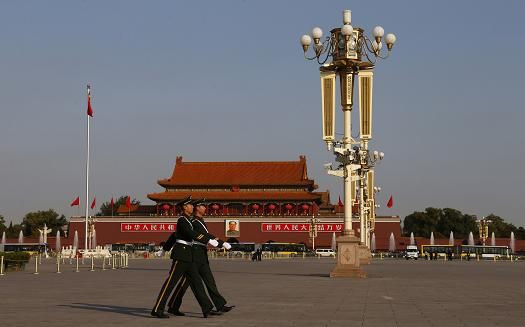Reading China's Tea Leaves As 18th Communist Party Congress Begins

On Thursday, the event that will culminate with the announcement of China's new leadership begins: the 18th National Congress of the Communist Party of China, marking the formal transition of power from one generation to the next. During this congregation of China's top leaders, the party's position on politics, the economy and other key issues will be discussed and reinforced.
The Chinese Communist Party convenes a National Congress every five years to write a new chapter in the book begun by its revolutionary forefathers in 1949 with the foundation of the People's Republic. Each congress marks a milestone in the party’s progress along what it calls its socialist path.
At this year's Party Congress, 2,270 representatives from 40 delegations will broadly represent China’s diverse political, social, and ethnic constituencies. The number of representatives at the 2012 congress marks a 20 percent increase over the 17th Congress five years ago. This is said to be evidence of a continued growth of party membership. Even after China has fully embraced a capitalist market economy, Communist Party membership can represent a key to advancement in society and success in business.
Fifteen percent of this year's Congress representatives have been selected through intra-party elections, but this does not mean the party's internal processes have become democratic: Promotions within the party are still essentially predetermined. For the most part, the voting process remains perfunctory; representatives 'running' for a position are likely to win by a landslide.
At its core, the Congress is a meeting of the party elite, led by the 204 members of the CPC Central Committee. The Central Committee forms the nerve center of China’s political direction-setting, with the even smaller Politburo Standing Committee at its core.
The Party Congress will elect the new Central Committee, and in turn the Politburo Standing Committee, where a new generation of leaders will take the reins from the outgoing leadership of President Hu Jintao and Prime Minister Wen Jiabao. If all goes according to plan, the Party Congress will make official what most have come to expect over the past months -- that Vice President Xi Jinping will be elevated to the presidency, and Li Kexiang will be the new prime minister.
The world will watch as China's new crop of government leaders begins to address the key issues: social equality, economic restructuring and future planning, and how to continue with state-directed capitalism in a fast-growing economy that, while still at a more than 7 percent growth rate, is slowing down. And this while managing new issues like China's growing, watchful social media platforms, and the rising tensions with other Asian nations over maritime disputes in the South and East China Seas.
Though speculation on China's leadership will soon be put to rest, the debates surrounding the aforementioned issues will remain behind closed doors and will take place with limited external input. But when the final Standing Committee members are formally appointed, China will continue to roll forward -- and its people will have a chance to monitor how the new government performs in the face of the country's various problems. The Chinese will soon be able to start making sense of what's to come.
© Copyright IBTimes 2025. All rights reserved.





















